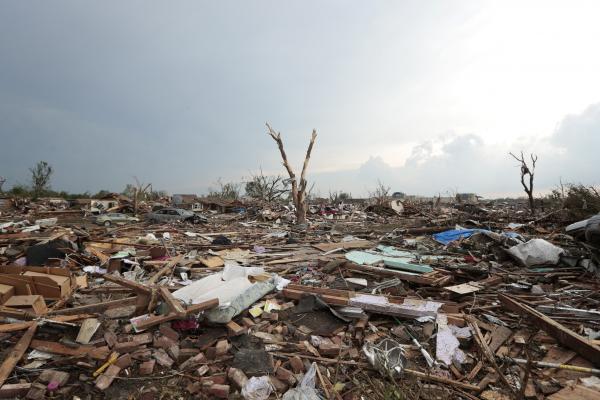Wearing a bright orange prison jumpsuit, the priest at the center of the furor in the Archdiocese in Newark made his first court appearance on Tuesday on charges he violated a court-sanctioned lifetime ban on working with children.
The Rev. Michael Fugee, 52, stood for the brief hearing as Bergen County Assistant Prosecutor Demetra Maurice read the seven counts against him.
Maurice is the same prosecutor who authored the 2007 agreement with Fugee and the Archdiocese of Newark that bars him from working with children in any capacity as long as he remains a priest.
What the heck is going on in Syria? If you are like me, you have a problem keeping all the players straight, and the unfamiliar Arab names don’t help. Thankfully, the Syrian president has a relatively easy name to remember, Bashar al-Assad, but keeping track of who’s who and which side they’re on is a real challenge. Frankly, even when I can keep track, I’m very skeptical that I am getting anything close to the truth from news outlets, the White House, or our State Department. The talk about a “red line,” no-fly zones, arming terrorists, and weapons of mass destruction sounds a lot like the falderal we were being fed going into the Iraq war. So what’s a good citizen of the world to do? If I can’t make sense of the news accounts myself, who can I find to help me out? And if I can’t trust my government to sort out the good guys from the bad guys for me, how can I ever figure out what, if anything, my government should be doing in my name?
It’s a hard truth that, in the real world, Goliath sometimes beats David.
In the July issue of Sojourners, I wrote about the battle to save the Anna Louise Inn and how Cincinnati’s faith community has come together for the fight. Run by Cincinnati Union Bethel, a small non-profit, the Inn has provided safe and affordable housing for women in the city for 104 years and is one of Cincinnati’s most revered institutions.
But last Monday, Cincinnati Union Bethel announced it was selling the Anna Louise Inn to Western and & Southern Financial Group after a two-year legal battle.
“The needed resources, time and energy to this litigation has diverted focus from our other successful programs,” they wrote on their website. “This settlement and purchase agreement allow us to dedicate ourselves to our mission of serving women and children.”
Cincinnati Union Bethel owns both the Inn and the land on which it sits, but Western & Southern – a Fortune 500 company located across the street – wanted the property to build high-end real estate. So, when Cincinnati Union Bethel received $13 million in federal tax credits to renovate the Inn, Western & Southern sued them and the city of Cincinnati.
“O Lord, our Sovereign, how majestic is your name in all the earth! You have set your glory above the heavens.” And from those heavens descended a deadly cloud.
“Out of the mouths of babes and infants ...” The children of Plaza Towers Elementary?
“What are human beings that you are mindful of them, mortals that you care for them?” Indeed that is the question that troubles the heart of the faithful in times like these.
Can we still praise God? If so, how do we start? Can we possibly understand what happened in Moore, Okla.?
Don’t trust anyone who claims to comprehend the meaning of this storm. Don’t trust anyone who points with absolute certainty to a single cause for this storm. Don’t trust anyone who treats a tornado as anything but indiscriminate and cruel. These tragedies are not punishments or object lessons. Such natural forces do not reach their conclusion with a pat moral or a simple “they lived happily ever after.”
Jesus says some stuff in the inaugural speech of his ministry that really upsets the status quo of both the religious and non-religious. In essence, he says, "If you are to follow me as King of this newly inaugurated Kingdom of God, you will need to start loving your enemies as much as yourself. You will need to start getting creative in how you deal with your oppressors in order to choose the way of love and reconciliation rather than the way of revenge and contempt. In fact, when you live as peacemakers, you best reflect what it looks like to be children of God. Those of you that choose this way of life will be blessed."
A few years later — after Jesus has been announcing the good news of the Kingdom through both word and deed — he looks over Jerusalem and begins to weep. Here is the people and the city that is to symbolize right relationship with God and humanity. It is to be a place of shalom where salvation flows through all aspects of life. It is to be the city of peace. Instead, Jesus stands on the Mount of Olives overlooking the city and laments, "If you, even you, had only recognized on this day the things that make for peace!"
Finally, Jesus, as king, messiah, and deliverer models this way of life to the point of death on a cross. Refusing to accept the lure of power through military might or pursuing peace through violence, Jesus embodies the life of suffering and self-sacrifice that he is calling his followers to emulate. Jesus, as the ultimate peacemaker, shows us that the life and work of peacemaking isn't some fairy tale euphoria, but the gritty, subversive and sacrificial life of faithfulness to a God and kingdom that lives by a different standard than the systems and powers of the world.
God, be with the first responders in Oklahoma, and may all in the communities and families be touched by your restorative will and strength.
I first became aware of the realities of sexual abuse in the church at the tender age of five. I happened to look at the television screen and witnessed police officers escorting my hand-cuffed youth minister in front of a crowd of reporters screaming questions. The words “YOUTH PASTOR ABUSED CHILDREN” flashed across the television screen.
I was confused and scared. My family comforted and assured me that the pastor had only “hurt” teenage boys and that I was safe. The church hired a new minister and, on the surface, life seemed to resume to normal for our congregation. But as a child I had no idea of the effects of the abuse and its aftermath had on the survivors, their families, and our church community. Many families soon experienced disintegrating marriages, friendships were broken, and faith was lost. One survivor’s family had their home repeatedly vandalized and were forced to move hundreds of miles from our town to escape fellow believers who grew angry with them for filing a lawsuit against the perpetrator.
Church leaders shunned media attention and feared “airing dirty laundry” in public, encouraging members to keep the experience a secret for the sake of the boys and church. As a child, and then a teenager, growing up in an otherwise loving, connected church, I never remember hearing church leaders address this aspect of our shared history in the open. To some of the survivors and the broken-hearted, the silence on this topic was welcome; to others it was deafening. While secrecy was the rule, the legacy of the abuse was real and active in the community. Rather than being cared for with dignity and love, the survivors and their families felt that they were a shameful secret to be whispered about and hidden. I learned as an adult that I was intimately connected with some of the survivors but never knew about their silent pain. I had no idea that I was a participant in a culture of silence and shame that often surrounds sexual abuse and is especially pronounced when boys are abused by men in the church.
A group of priests and nuns, some of whom were assaulted as children, has quietly been gathering to publically urge the pope and American bishops to "clean house" on sexual abuse in the church.
Many members in the group, though vocal on sexual abuse cases in the past, did not know eachother until last year, when a laywoman brought them together for as a "confidential support group."
The New York Times reports:
Their aim, they say, is to support both victims and fellow whistle-blowers, and identify shortcomings in church policies. They hope to help not just minors, but also adults who fall prey to clergy who exploit their power for sex. They say that their motivation is to make the church better and safer, and to show the world that there are good priests and nuns in the church.
“We’ve dedicated our lives to the church,” the Rev. John Bambrick, a priest in the Diocese of Trenton, said at a meeting of the group last week in New York. “Having sex offenders in ministry is damaging to our ministry.”&nbsminp;
Read more here.




